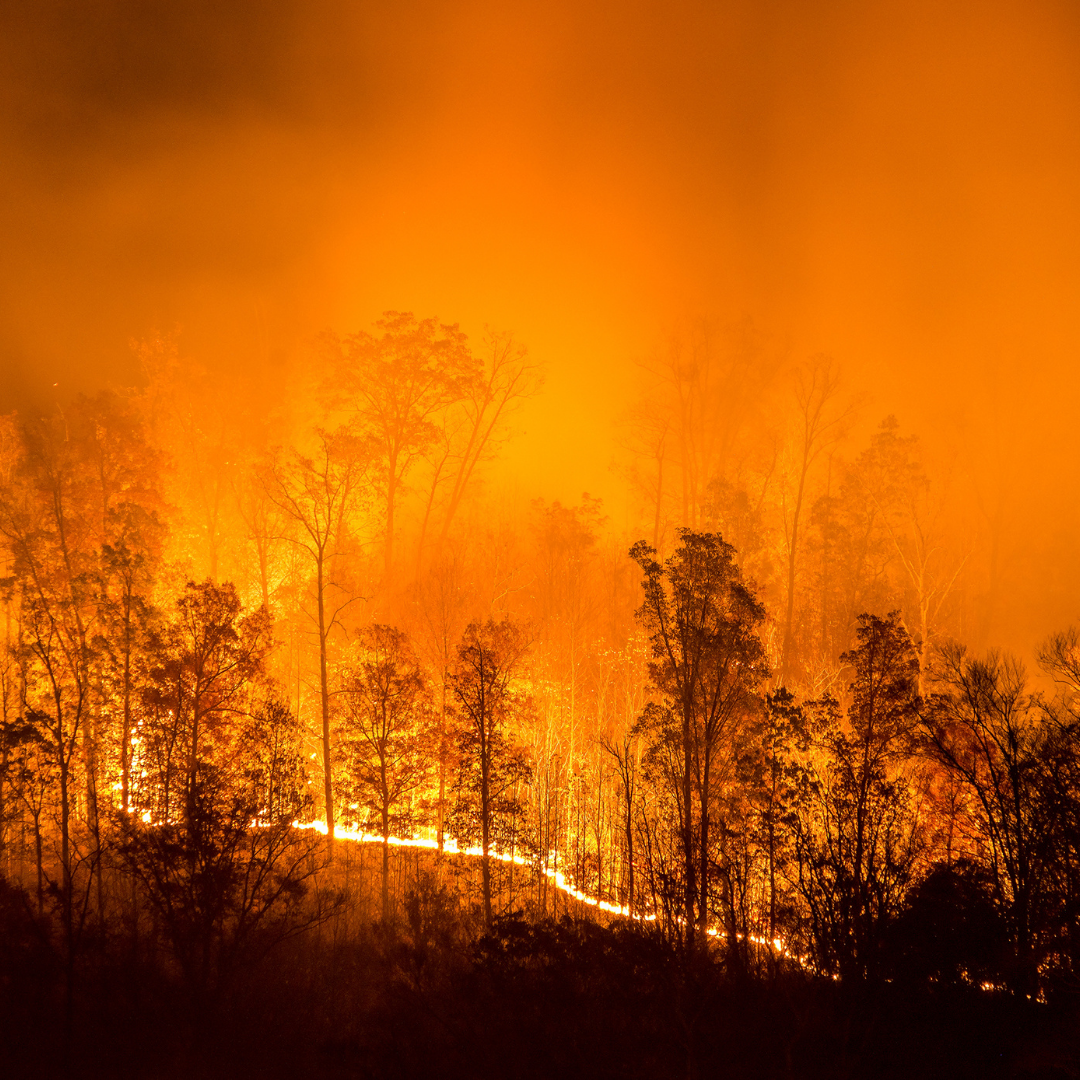North America is on fire.
The Pacific Northwest, in particular, experienced record-high temperatures this summer and are now dealing with the aftermath: large, uncontainable wildfires.

Nearly 90 large active fires are plaguing 12 US states. In BC, Canada, there are over 200 uncontrolled wildfires.
And the effects are hitting communities hard:
-
At the end of June, Lytton (a village in British Columbia) set Canada’s national heat record three days in a row—at 121 degrees. For perspective, this is hotter than Las Vegas’ all-time high of 117 degrees. It led to a wildfire that destroyed almost the entire town and killed two people.
-
The US’s largest fire, Oregon’s Bootleg Fire, has already scorched nearly 400,000 acres of land. For more than 13 consecutive days, it spread at an average rate of 1,100 acres per hour—a rate that would burn through New York’s Central Park in only 45 minutes.
- The US’s second largest wildfire, California’s Dixie Fire, has burned almost 300,000 acres of land—and is only 30% contained. Roughly 1250 people have been evacuated from their homes. Together these two US fires have destroyed land nearly the size of New York, Los Angeles, and Chicago combined.
Tens of thousands of firefighters are fighting these wildfires, but drought conditions are making it a tough battle. It could be months before we can control them! So in the meantime, you need to protect yourself and your family—especially if you’re located in the Pacific Northwest.
5 Measures to Stay Safe During Wildfire Season
-
Keep an eye on real-time fire maps. It’s important to be aware of your surroundings during wildfire season. While you can get a lot of information through your local news outlet, we also encourage you to take a look at official fire maps, like this one from NASA.
-
Sign up for emergency alerts. Thousands of people living in Oregon and California have been ordered to evacuate their homes due to the wildfires. If you live in an area close to wildfires, you should sign up for emergency alerts from the EAS and NOAA. An evacuation order could happen in the blink of an eye.
- Create an emergency evacuation kit. If you’re asked to evacuate, you need to be prepared. Sometimes, you may only have a few minutes! Take a look at this comprehensive checklist to create a grab-and-go bag (don’t forget your KN95 mask). And remember, keep your kit somewhere accessible.

- Determine your evacuation route and shelter location. Once you’re asked to evacuate, where do you go? Does your family know where to meet? These are important questions to sit down and consider with your loved ones. Read over this blog post on wildfire preparedness before, during and after and create a plan together.
- Assess your local air quality. Real-time air quality maps are also typically available, like this one from the government of BC. Or, you can purchase your own air quality tracker. While you may think it’s just a little smokey outside and you can still go on your morning run, think again—the air quality could be worse than you think!
Take Control with Wynd Air Purifiers
Many people overlook air quality. In reality though, it can have major impacts on your health.
Wildfires can turn air quality from great to extremely poor in no time. Why? When wood burns, it creates smoke—which is a complex mixture of gases and fine particles. These fine particles can lead to huge health threats. They can get into your eyes and respiratory system and cause health problems such as burning eyes, running nose, and illnesses like bronchitis. They can also aggravate chronic heart and lung diseases—and even lead to premature death for those that suffer from these diseases.
It’s no joke. But while wildfires are hard to control, your air quality doesn’t have to be. Filter these harmful wildfire smoke particles out of your home using a Wynd air purifier.

If you’re prepping for your family, we encourage you to take a look at this family bundle, which includes the Wynd Plus, Wynd Max Purifier, and Wynd Halo—perfect for at home or on the go.
Wildfire season isn’t going anywhere this year. Be proactive and prepare your home! (Trust us, your health will thank you.)
